If you’ve had chickens for long, you probably have noticed that they eat all day long. They peck and scratch at the soil and eat every last bit of our kitchen scraps and leftovers.
Letting your chickens free-range, or giving them access to plenty of natural vegetation and/or rotating their grazing parameters, is the key to happy chickens and healthy eggs.
While also being more cost-effective than a diet consisting mostly of store-bought chicken feed, giving your hens a diverse menu of chicken-friendly plants to choose from greatly increases the nutritional benefits of a single egg.
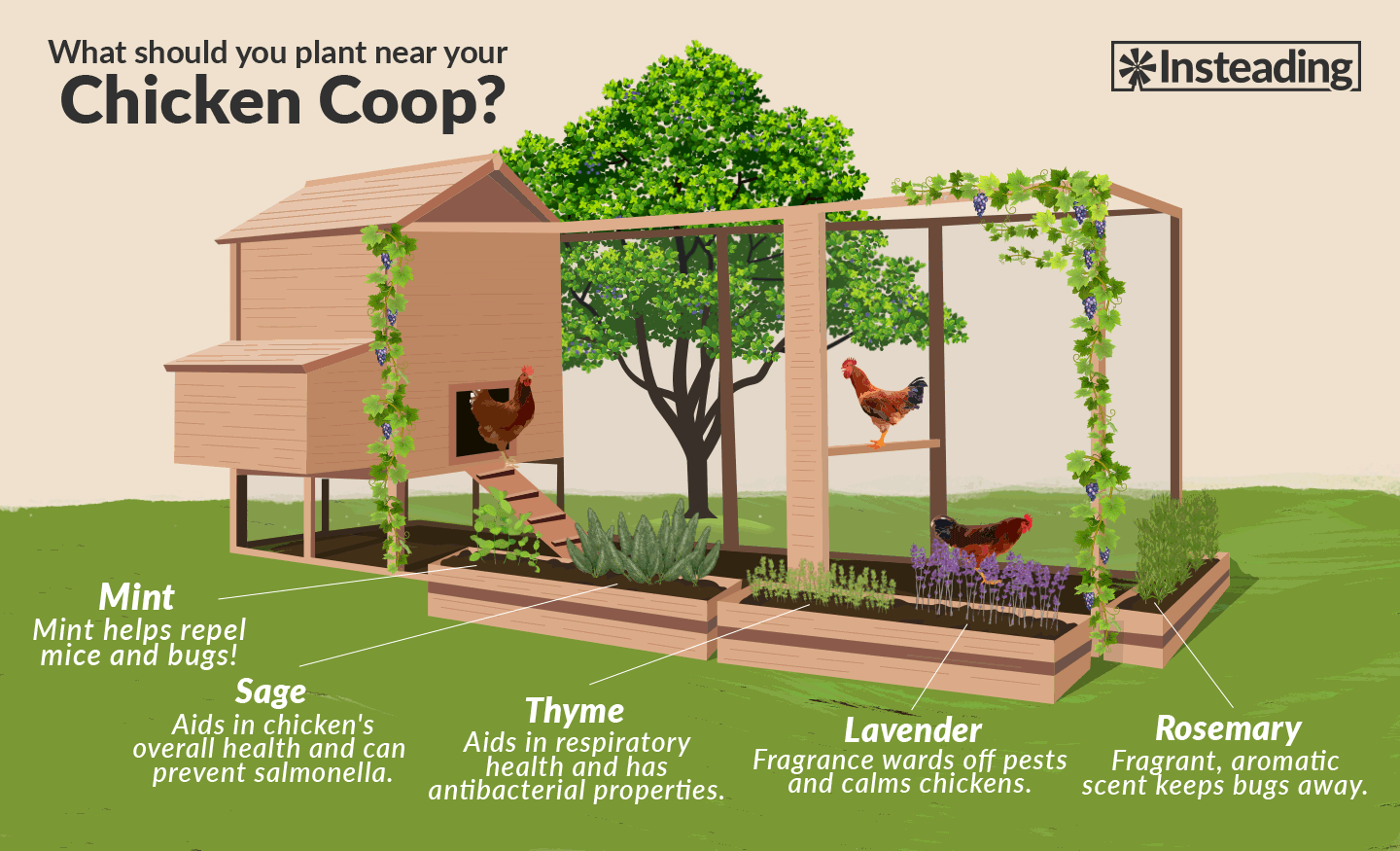
Here on our homestead, we’ve recently reintroduced our hens to having free range of the yard and within a week we noticed a difference in the quality of the eggs they were laying. The shells were thicker, the yolk was brighter, and the eggs were tastier (our chickens were happier too!).
Making sure your chickens are eating nutritiously is just as important as making sure we are eating nutritiously. Giving your flock access to highly nutritious chicken-friendly plants like herbs, veggies, and perennials can be an easy way for you to consume the benefits of the plants as well.
Before we get into highlighting specific chicken-friendly plants individually, here is a full list.
List of Chicken-Friendly Plants:
Fruit, Shrubs, & Small Trees
- Most Fruit Trees & Canes
- Raspberry Bushes
- Blueberry Bushes
- Currants
- Mulberries
- Siberian Pea Shrub
9 Healthy Herbs For Chickens
Having culinary and medicinal herbs right outside your chicken coop provides your chickens with easy access to these chicken-friendly plants, while also making it convenient for you to add oregano or rosemary to your morning omelet.
Here is a list of herbs to plant in or around your chicken coop:
1) Comfrey: Symphytum officinale
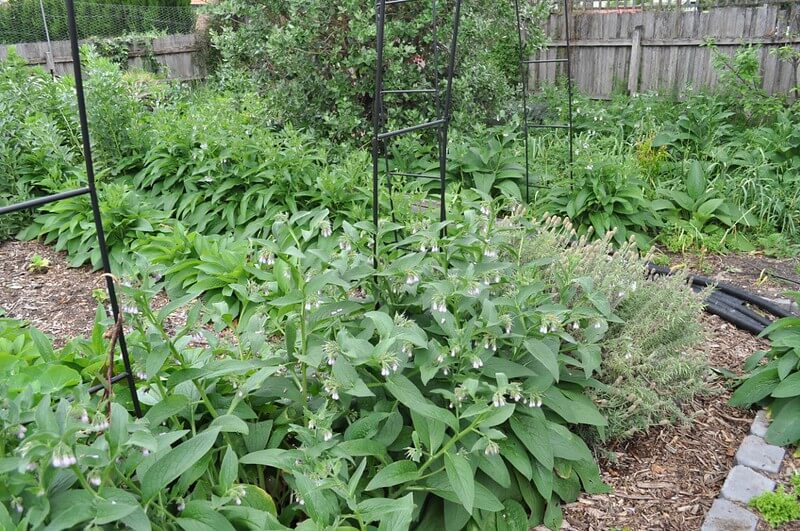
These perennial chicken-friendly plants are rich in protein, potassium, and calcium. Beneficial to chickens for their general health and laying. [Buy]
2) Fennel: Foeniculum vulgare
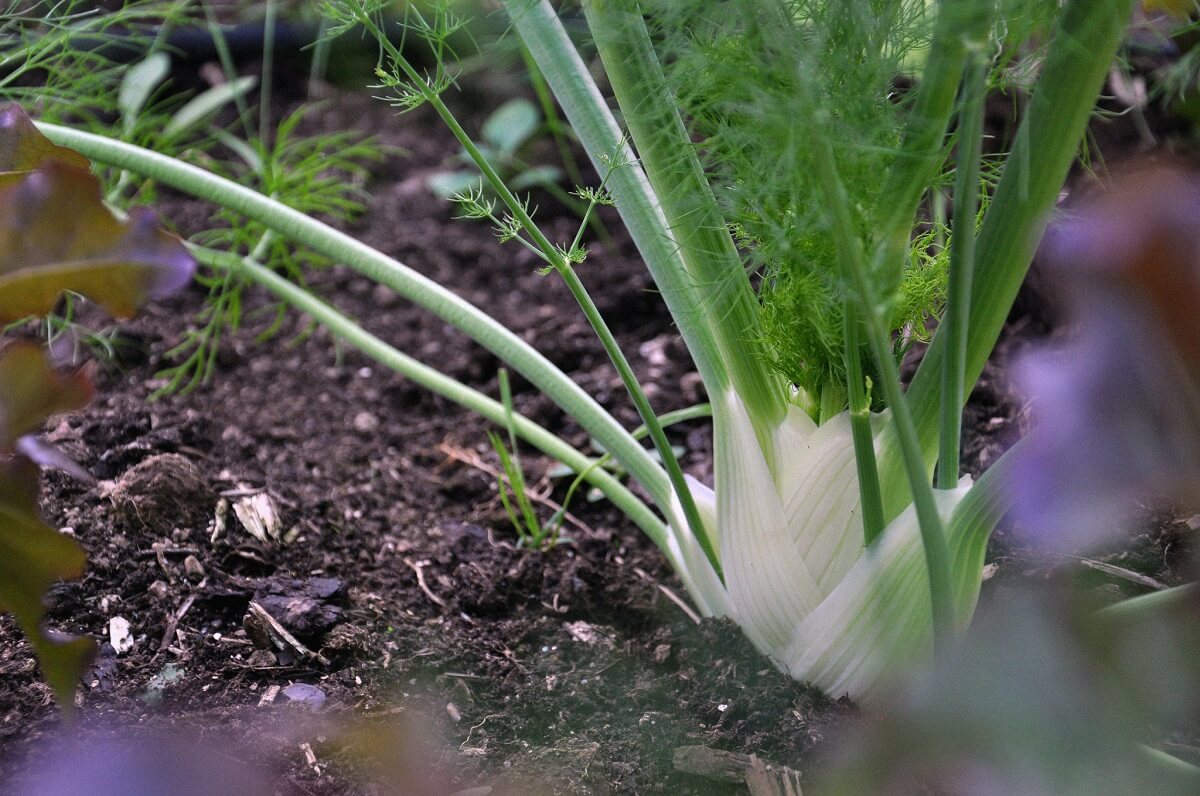
Lacy pods of yellow flowers attract butterfly larvae and beneficial insects for chickens to eat. Their foliage and seeds are also good for general health. [Buy]
3) Thyme: Thymus Vulgaris
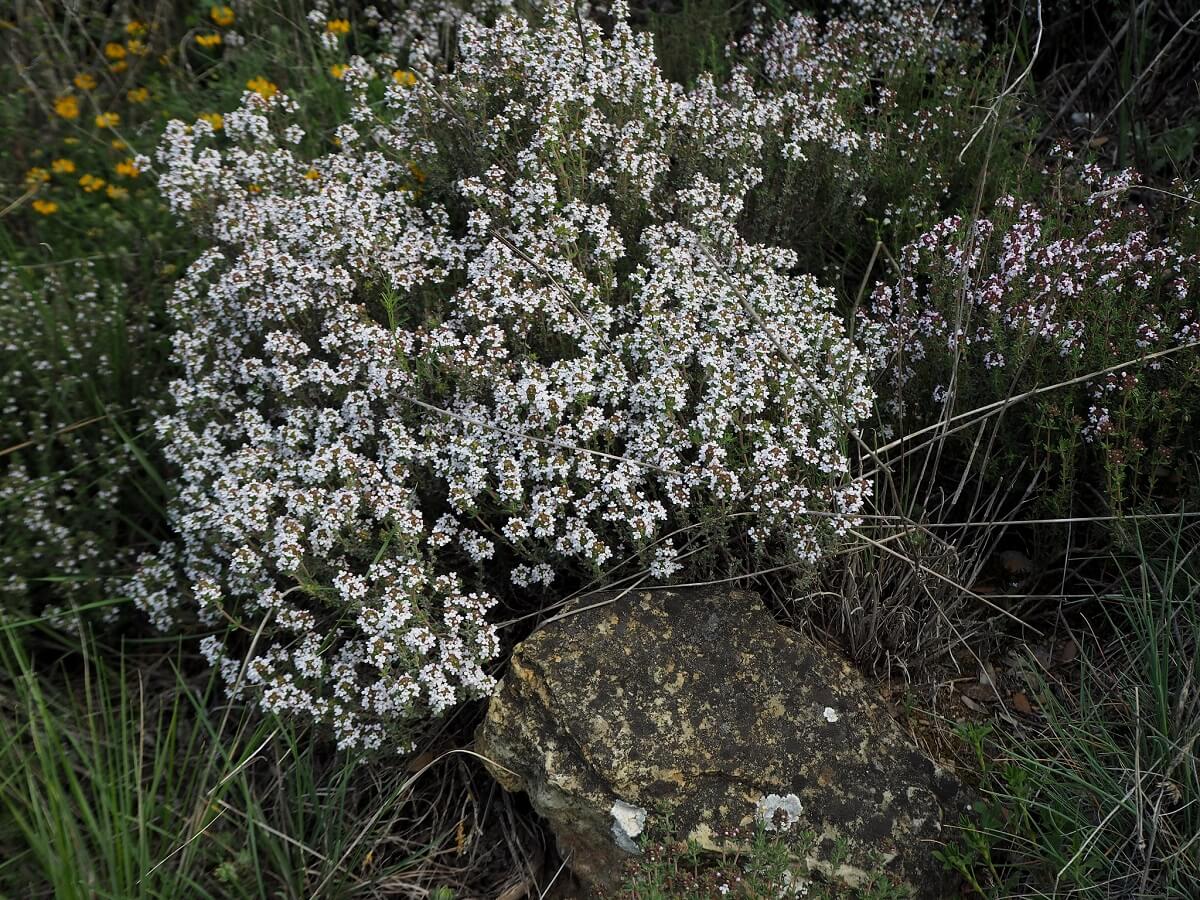
These perennial chicken-friendly plants aids in respiratory health and has antibacterial/antibiotic properties. [Buy]
4) Lavender: Lavandula species
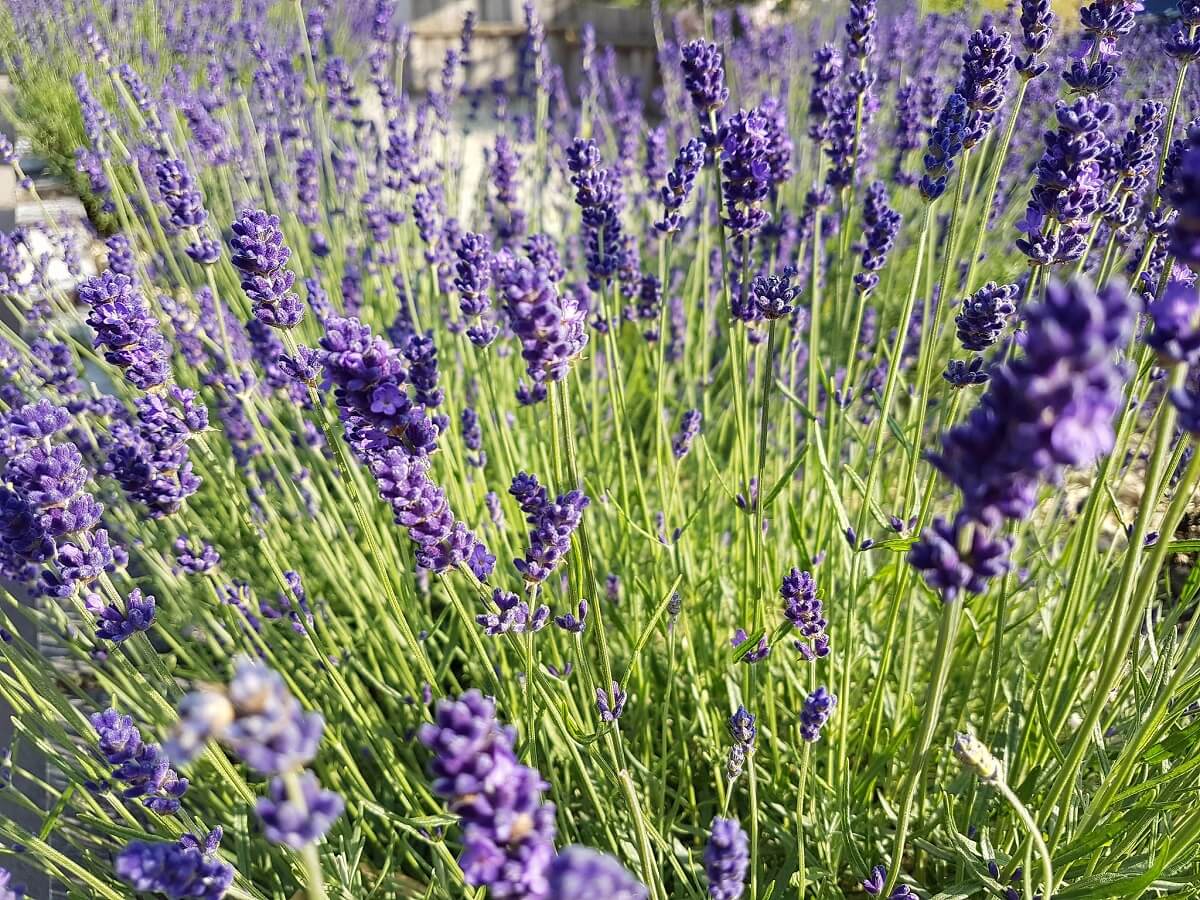
Lavender is a natural insect repellent. Putting dried lavender in your DIY chicken coop or near your chicken run can have calming effects on the chickens as well as being a natural air freshener. [Buy]
5) Nasturtium: Tropaeolum majus
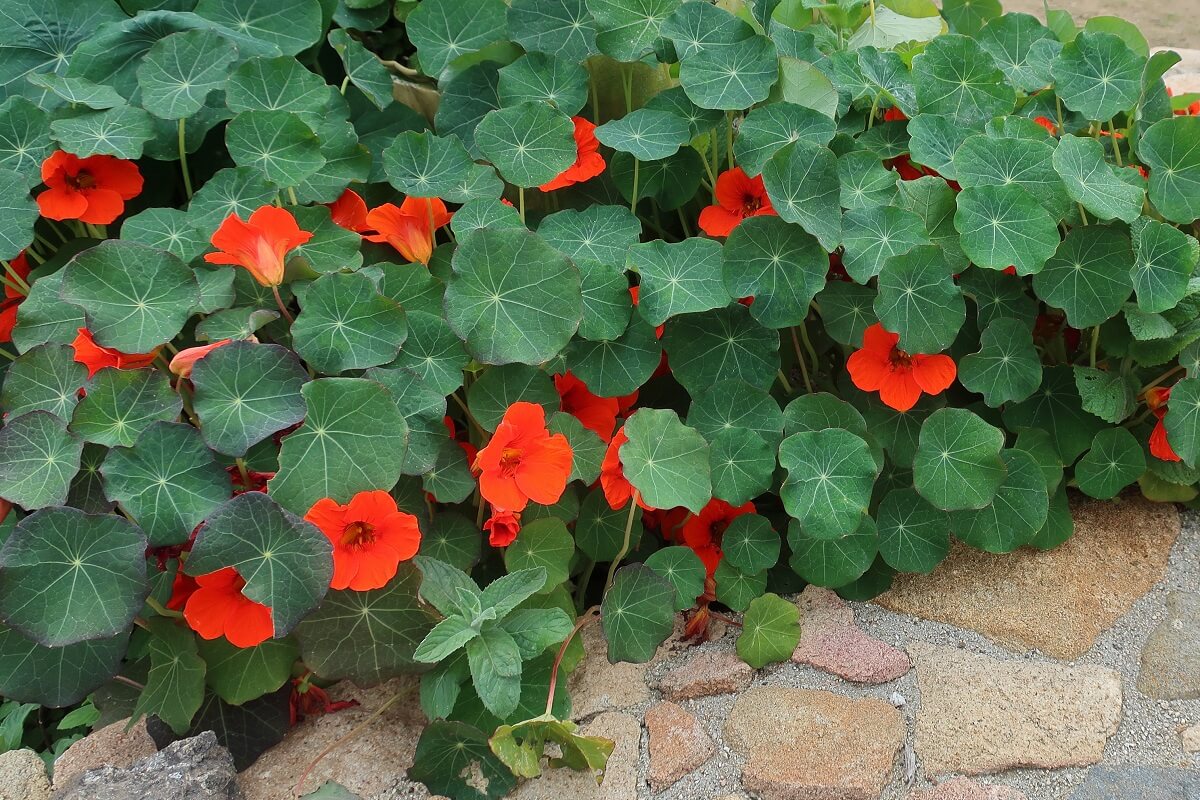
A great general plant for chicken health. It has antiseptic and antibiotic properties. Its seeds can be used as a natural chicken de-wormer. It also has insect repellent qualities. Not to mention, nasturtium flower petals add a bright pop of color to your chicken yard and are edible flowers, too! [Buy]
6) Rosemary: Rosmarinus officinalis

The aromatic scent from these chicken-friendly plants repels insects. [Buy]
7) Sage: Salvia spp
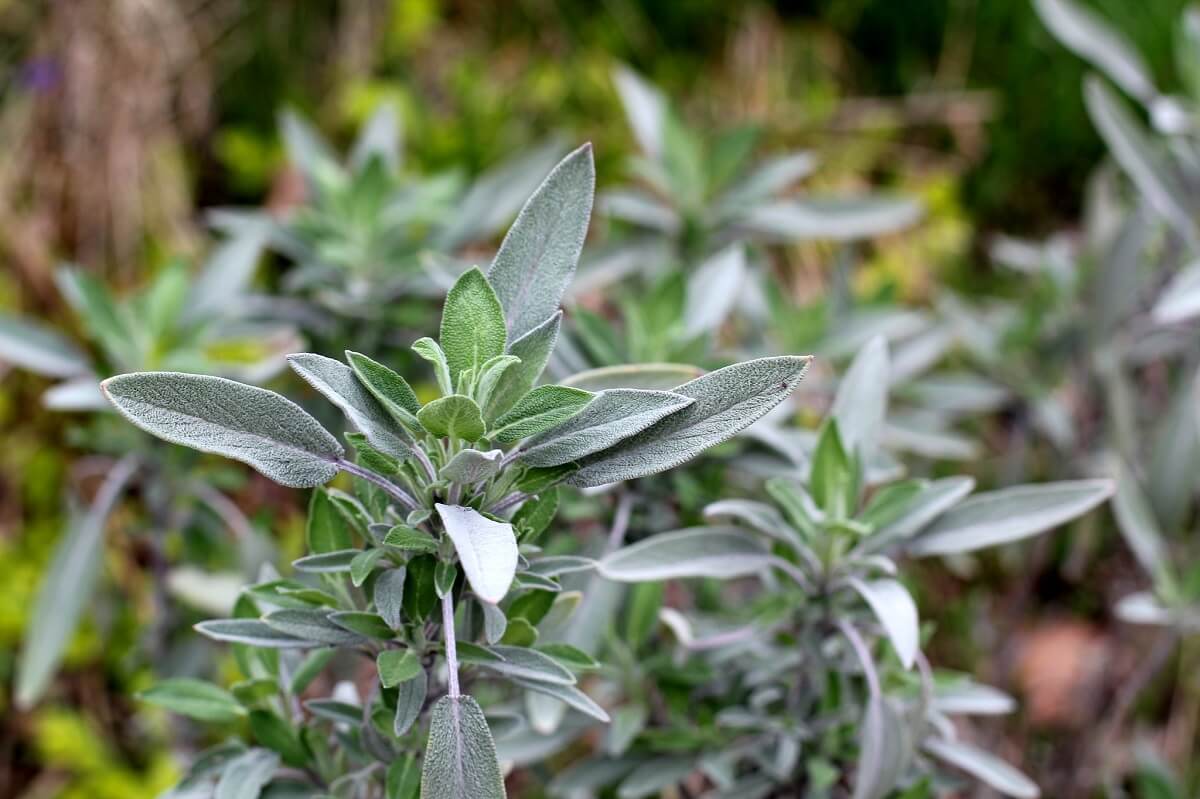
Sage is a good herb for chickens’ general health. Acts as an antioxidant and can help prevent salmonella. Not to mention, this perennial plant smells absolutely lovely and would look nice growing alongside a chicken run. [Buy]
8) Wormwood: Artemisia absinthium

Here’s a chicken-friendly plant that helps control external parasites and is a natural insect repellent. [Buy]
9) Oregano: Origanum vulgare
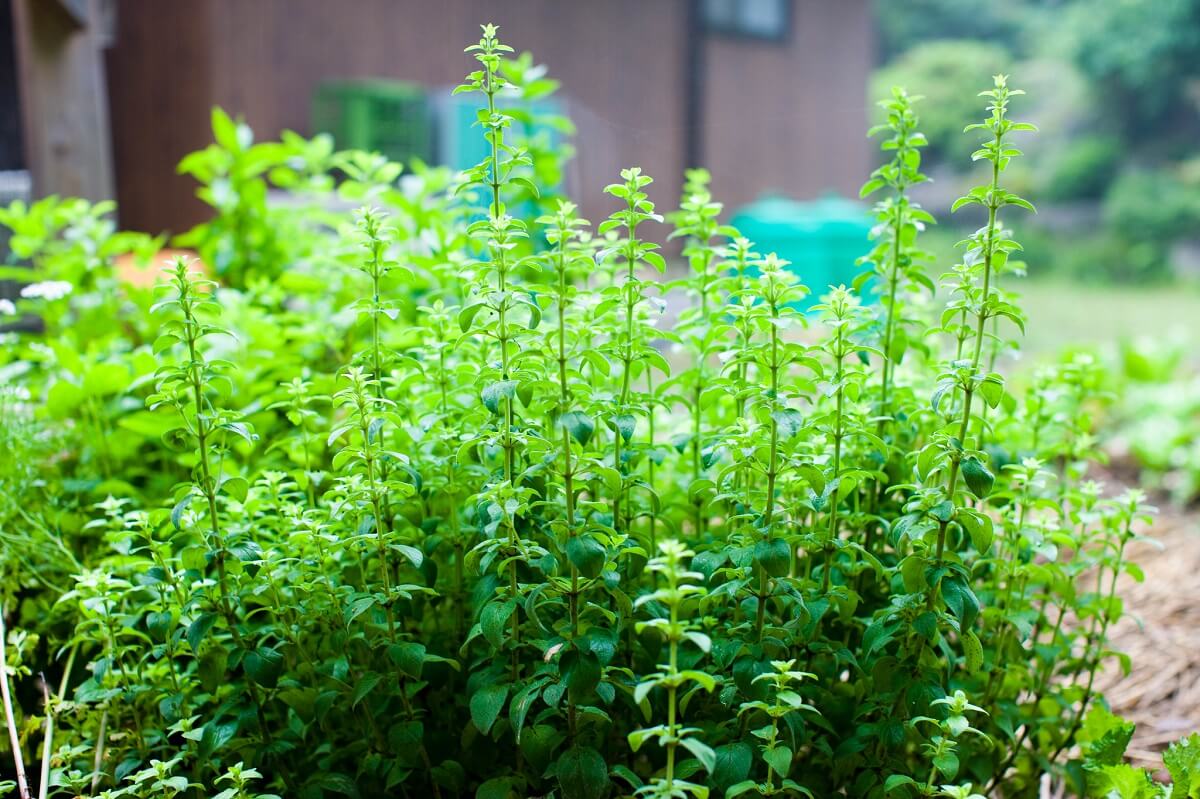
Can boost chickens immune systems and helps fight off e.coli, coccidiosis, salmonella, and avian flu. Oregano is being studied as a natural antibiotic on large scale poultry farms. [Buy]
Related Post: Are There Laws Against Backyard Chickens?
To learn more about keeping your hens healthy with herbs, take a look at An Herb Garden For Chickens by Lisa Steele.
Naturally Growing Food For Chickens
Here are a few more chicken-friendly plants that can be valuable to sow in your chicken area for extra protein and more calories. Many of these plants service multiple purposes in the garden, including cover cropping and soil improvement.
10) Siberian Pea Shrub: Caragana arborescens
This amazing plant is a premier permaculture plant and can be a homesteaders best friend. A perennial in the legume family that is high in protein and is also a nitrogen fixer for the soil.[Buy]
11) Amaranth: Amaranthus hypochondriacus
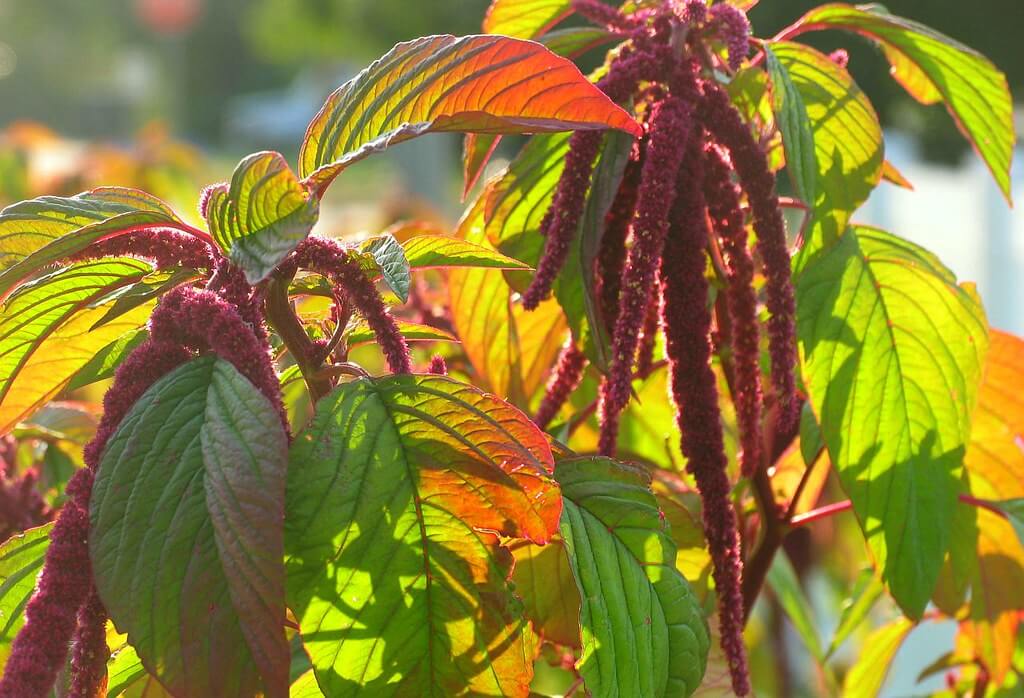
A beautiful addition to any garden, with bright colored seeds and lush broad leaves, your flock will love having a grain supplement in their chicken garden, which is also gorgeous to look at.
12) Plantain: Plantago lanceolata
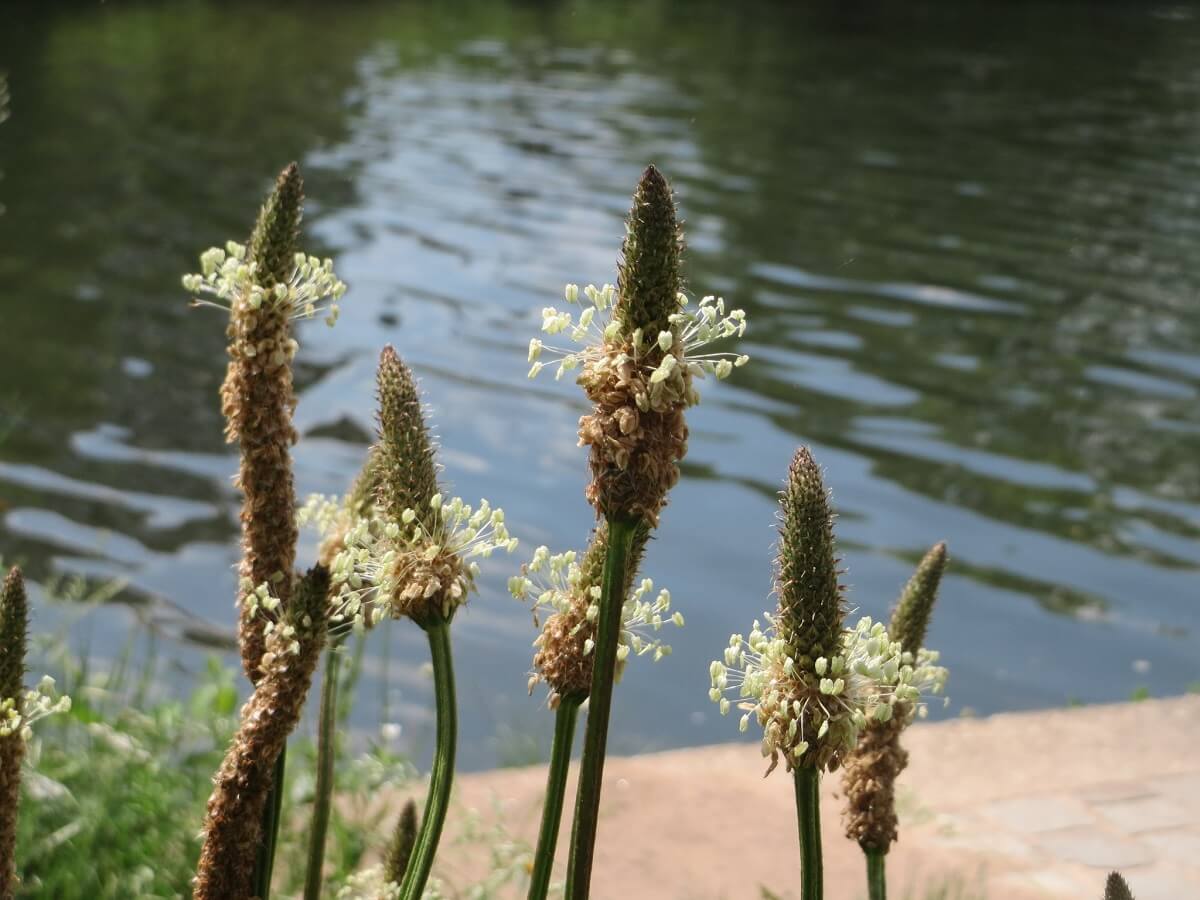
The mature seeds of this plant can used by humans as a natural laxative and as a high protein and mineral source for animals. And your flock with love munching on them in a chicken yard or garden. [Buy]
13) White Clover: Trifolium Repens
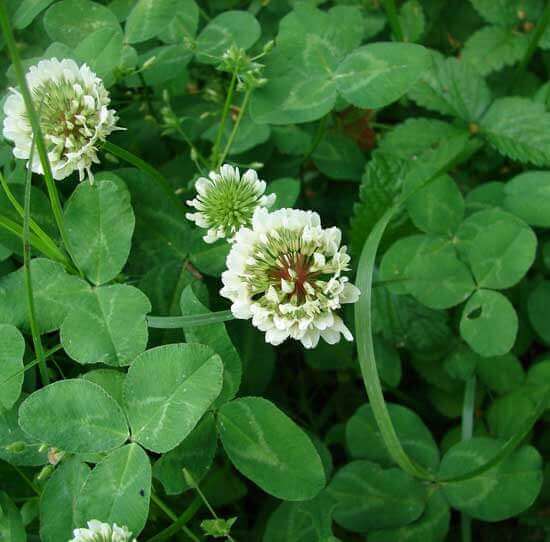
We’ve written about the benefits of white clover as a living mulch in the past. But did you know it’s one of the best chicken-friendly plants, too? Our friend Kevin Fletcher of New Country Organics had this to add:
If you are looking for ground cover to use near chickens I would suggest White Clover. Clover is high in protein but can withstand traffic and stress very well. If you are looking to supplement their feed, Millet and Sunflowers growing beside the coop will provide extra treats. But you’ll have to protect them until they are at least two feet high.
Looking for more ideas? Try more grain-like plants like Clover, Alfalfa, Sunflowers, Peas, Lentils, and Buckwheat. You can also try more fruit trees and canes like Raspberries, Blueberries, and Mulberries. While many people consider them weeds, Chickweed, Dandelions, and Nettles are also decent additions as well. And don’t forget about herbs like mint!
Plants To Avoid Growing Near Chickens
Before you release your chickens into the abundance of your backyard or decide to plant a garden surrounded by chicken wire specifically for your flock, there are a few potentially toxic plants you should know about.
Unlike other livestock animals, chickens have a keen sense of knowing what plants are poisonous and what plants are good for them. Luckily their intuition keeps them away from even trying the poisonous ones, but there are exceptions to everything.
Related Post: What Do Ducks Eat?
If you’re planting near a coop, you’ll want to make sure you’re not growing these plants nearby in case your hens are feeling hungry or pressured to eat something due to proximity (hopefully you have enough natural food to avoid that, of course).
In order to eliminate all chances of accidental toxicity, here is a list of common toxic plants to be aware of:
- Daffodil: Narcissus spp.
- Daphne: Daphne spp.
- Foxglove: Digitalis spp.
- Honeysuckle: Lonicera spp.
- Hydrangea: Hydrangea spp.
- Nightshades: Solanaceae spp. Tomatoes, Potatoes, Eggplant, and other members of the Nightshade family.
- Rhododendron: Rhododendron spp.
- Tulip: Tulipa.
For more information and a full list of potentially poisonous plants visit BackyardChickens.com.
Free-Ranging Your Chickens Offers Additional Diet Variety
In permaculture philosophy, each garden element has multiple functions. An example is bamboo that acts as a windbreak while also providing food, shade, and shelter.
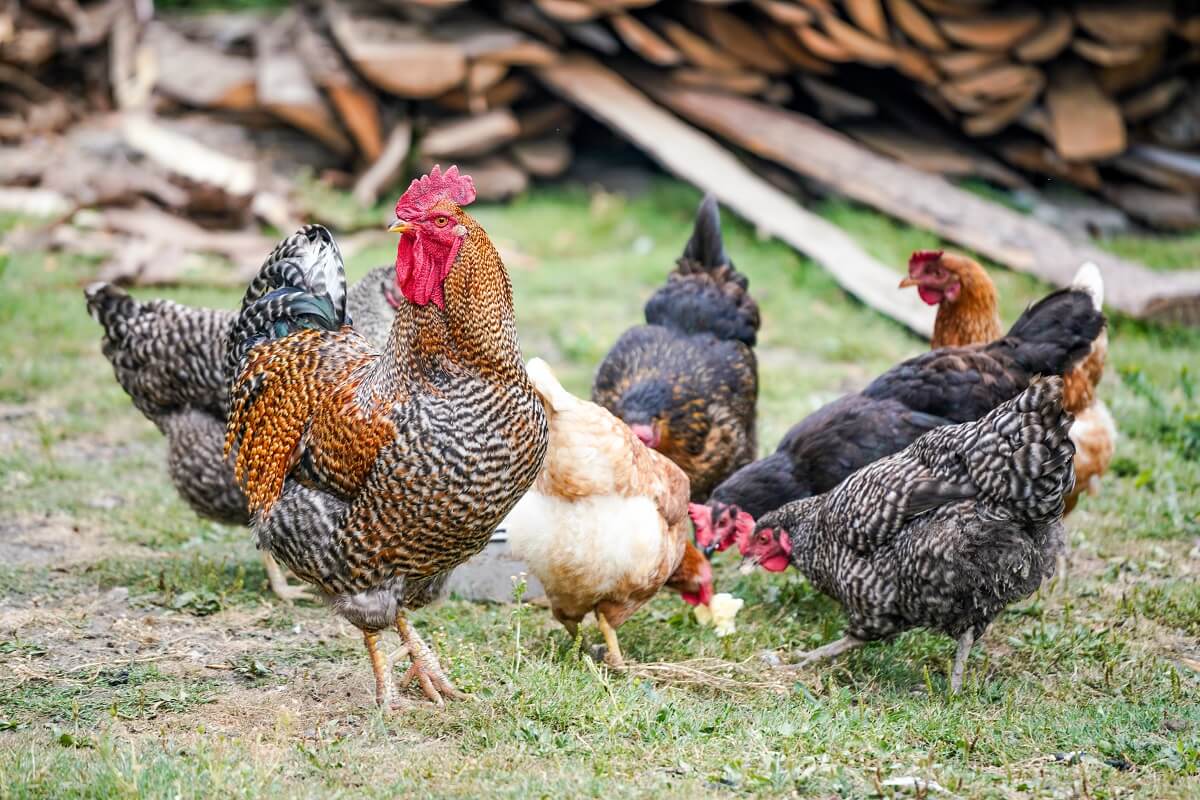
Free-range chickens can also serve multiple functions in the garden, providing your family with more than just eggs or meat. Joel Salatin, known for his revolutionary and holistic methods of raising livestock in a sustainable and regenerative way, gives examples of how chickens can help us accomplish simple tasks in and around the garden.
Debug A Space
Chickens eat bugs at all levels of the bugs life (adult, larval and egg). It’s a good idea to leave your chickens in a space where you have a bug problem and within a few hours you will have a pest-free area and have fed your chickens an abundance of protein-rich food!
Spread Mulch
Place chickens on top of a mulch pile, like wood chips, and they will spread it for you within hours.
Till Soil
Leave chickens in an area long enough and they will till the ground for you. Make sure they have normal feed in addition to what is growing so they’re not forced to eat something that they don’t want to.
Fertilize
Put your flock out in a pasture or soon to be garden space and let them naturally fertilize the soil or grass with chicken manure.
Assist in Composting
Leave chickens on your compost pile and as they scratch it looking for bugs and other food sources, they will be oxygenating the pile. And as they add manure to the pile they will be contributing the necessary nitrogen element to the composting process.
Here’s an awesome post that talks about how chickens can perform multiple functions in the garden and demonstrates the symbiotic relationship of gardening and animal raising.
Do you plant crops near your chickens to provide them with additional feed during the year? What do they love & what works best for you? Leave your comments below and let us know what your favorite chicken-friendly plants are!

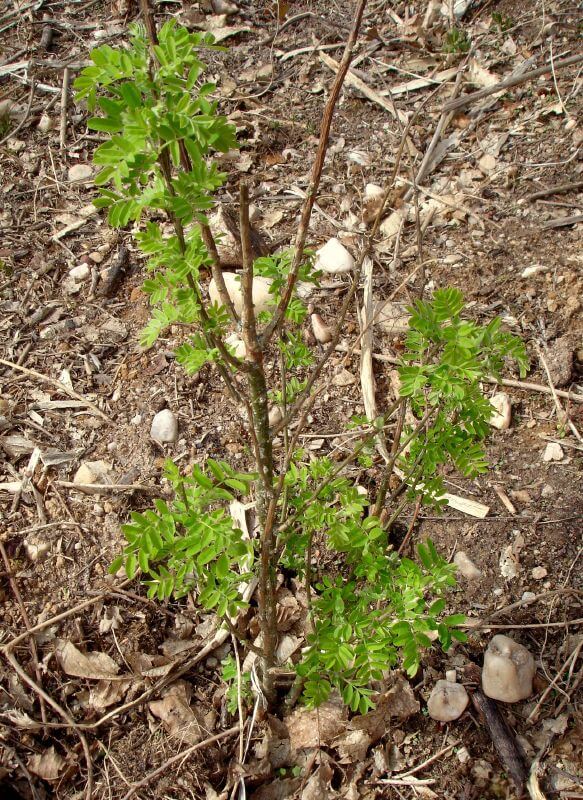
Leave a comment